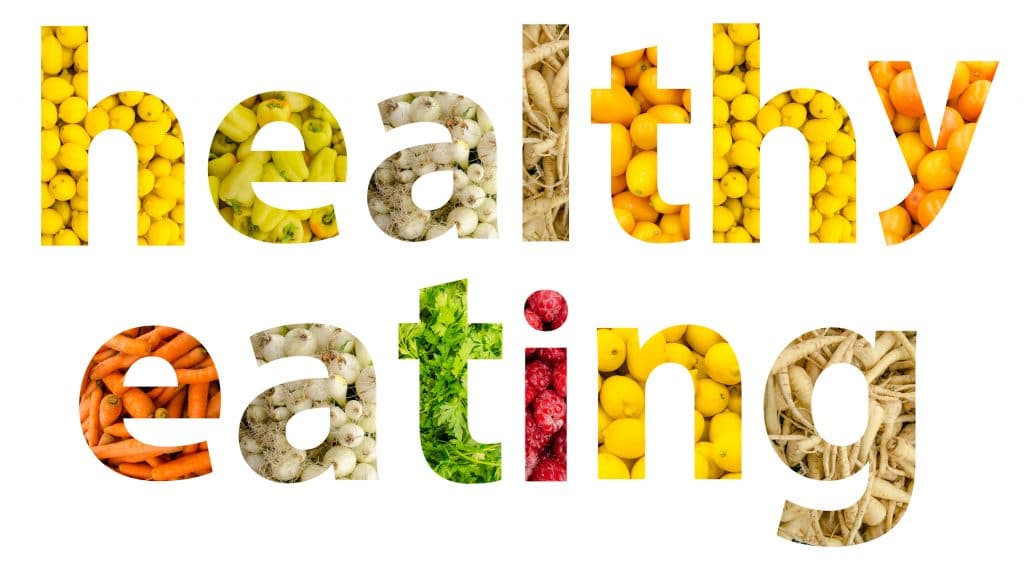Healthy eating tips for weight management
At a certain age, it seems that if we don’t micro-manage what goes into our mouth, then it is impossible to keep our weight down. But who has time to change their life around food, when there’s barely enough time to breathe?
It takes time to change old behaviors around food so I’ve selected the healthy eating tips that have helped me drop 13 kgs and see it stay off permanently. We are also keen to hear about your healthy eating tips so please feel free to get in touch if you’d like to share them.
Here are 13 healthy eating tips I’ve used when maintaining weight and health:
- Start the day with a big glass of warm water containing a tablespoon of organic unfiltered apple cider vinegar. I use Bragg’s as this also contains the ‘mother’, which are the strands you’ll see floating in the bottle comprising proteins, enzymes and friendly bacteria. There are no definitive studies proving the link between vinegar and weight loss but anecdotally many people I know have had a benefit (including me) and studies show it can promote satiety and positively modulate insulin and glucose levels.
- Instead of 3 main meals, include 2 meals and 2 – 3 small snacks spread over the day. Evenly distributed meals with a protein component will help with sustained energy and stable blood sugar levels. The bigger the meal, the harder your pancreas has to work to produce insulin.
- Eat foods with a low glycemic Index (GI) – low-GI foods break down to form sugar in the blood more slowly, so the demands on the pancreas are not as great.
- For a quick breakfast, blend organic coconut water, berries, ground chia, an egg and some coconut pulp or oil. Sounds weird but is delightful (the eggs make it fluffy). I use a thermomix which makes this process super-easy and has overall improved my capacity to implement healthy eating habits.
- If you can, try to eat around a table at a regular time, rather than in front of the TV. Chew food slowly as this gives the stomach time to send messages to the brain, triggering the signal to the body to stop eating.
- Increase fiber in your diet – bulk up your plate with lots of vegetables rather than meat. When I’ve been overweight I’ve also taken fiber tablets with lots of water before meals to keep a lid on my appetite which is typically huge. Make the veges into soups to heat at work and accompany this with a tin of tuna in olive oil to get a balanced meal.
- Try to keep your stress levels under control so you are less likely to eat for emotional reasons. Before or after lunch get out and go for a walk; set up a walking club at work so you get some support to do this.
- Check the quality (eat whole foods, fruits and vegetables and lean protein), quantity (when in doubt, eat half of it or less) and frequency of eating. Incorporate healthy snacks such as vege sticks with dips such as hummus or guacamole.
- BAN processed foods as these more often than not have high levels of salt, sugar and things containing numbers. If you don’t know the ingredients then don’t eat it!
- BAN baked goods such as pastries, cakes and biscuits.
- Be accountable for your calories. If you are female and in your 40s or 50s and exercising (not an athlete), then you’ll need about 1,500 to 1,600 calories a day. A middle-aged man, of average height and not an athlete but exercising, needs about 1,800 to 2,000.
- Put food onto plates rather than in serving bowls. You’ll then eat less.
- Increase your exercise: regular physical activity is the best way to keep the pancreas working effectively into old age and will help prevent type 2 diabetes. A combination of cardio and weight bearing exercise is best.
Last Reviewed: 11-May-2017
The following two tabs change content below.
Whilst wielding a couple of dumbbells in a gym class in 2003, Kate experienced an epiphany around the lack of accepted best practice guidelines when it came to staying well and avoiding disease. Kate realized that she had no chance of slowing her own aging process unless she became better educated about her options.
